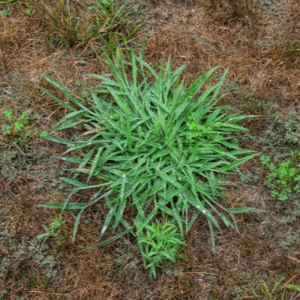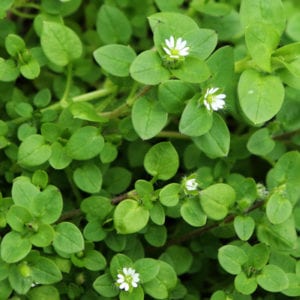It’s summertime here in Arkansas, and that means late nights around the campfire, backyard barbecues, and fun with the family outside. Why allow weeds to destroy the lawn you’ve worked so hard to obtain these last few months? Weeds can sneak into your yard by hitching a ride on the wind or from messy birds. There are so many different kinds of weeds, it’s hard to keep up with which affect different types of grasses and how to prevent them. We’ve taken the liberty of listing the most common types of weeds that affect our zoysia, bermudagrass, and fescue lawns.
What Are Those Commonly Found Weeds?
Crabgrass
Crabgrass receives its name because it grows low to the ground and contains stems that protrude outward from its center, resembling crab legs. It’s an annual weed whose seeds germinate during the spring and summer when the soil’s temperature reaches 55 degrees Fahrenheit for at least five consecutive days. Crabgrass thrives in hot, dry conditions. It loves thin, weakened, compacted soil because bare lawns allow the sunlight to hit the soil directly. With one crabgrass weed being able to reproduce 150,000 seeds during the growing season, no wonder it’s a tough weed to control. Crabgrass tends to crowd out any good grasses that have become weakened.
How to Prevent Crabgrass
The best way to discourage crabgrass from appearing in your yard is by maintaining a thick, full, healthy lawn. A pre-emergent can be utilized in early summer to help stop crabgrass from growing and spreading.
Nutsedge
Also known as nutgrass, because it looks like grass, it is one of the most challenging weeds to control and doesn’t stop at just your turf. It likes to invade and infect your garden and surrounding greenery. The key to halting this weed from destroying your lawn is to identify it early. It can be easily identified by its triangular-shaped blades often described as lime green or bright green. The root system consists of fibers called rhizomes that produce tubulars. Each tubular can produce a new plant that grows every four to six weeks, giving it plenty of time to plant and regrow.
Stopping Nutsedge From Ruining Your Arkansas Lawn
Nutsedge is one of the most difficult weeds to control. It thrives in damp, humid weather and prefers lots of sun. It loves areas of pooling and standing water, so having proper drainage is important in preventing this vial weed. Annual aerating and seeding is also highly recommended to help fill in bare spots where weeds have previously been killed.
Chickweed
Named chickweed because it is the favorite food of chickens, it is an annual broadleaf, and it germinates in the fall. Chickweed is technically an herb and can be used in salads or broken down to make use for components of oils. Although it has various purposes, it is considered a weed because it is unappealing to the eye. Chickweed grows to be about eight inches in height and has hair covering its entire length. It grows during the winter, produces seeds, and usually dies by the summer.
Ways to Combat Chickweed
The best way to prevent chickweed is by growing a thick, healthy lawn. Watering your lawn infrequently but deeply also helps to keep chickweed at bay since it prefers damp soil.
Best Weed Prevention Method
All of these weeds have something in common. While maintaining a healthy lawn is not foolproof, the most effective way to prevent these and other weeds is through maintaining a healthy, thick, full lawn. Proper fertilization, weed control, and appropriate amounts of irrigation are vital in preventing an environment ripe for lawn disease and weed germination.
At TLC Turfmaster Lawn Care, LLC, we offer a 7-step lawn care program that combines fertilizer, herbicides, liquid aeration, and a dethatcher to ensure your lawn will receive the nourishment and strength it needs to thrive. We also offer aeration and seeding services to protect your grass better and help fill in when weeds ruin patches of your lawn. Contact us online or by phone at 901-509-9005. Get to know us on a more personal level by following us on Facebook and/or Twitter.
